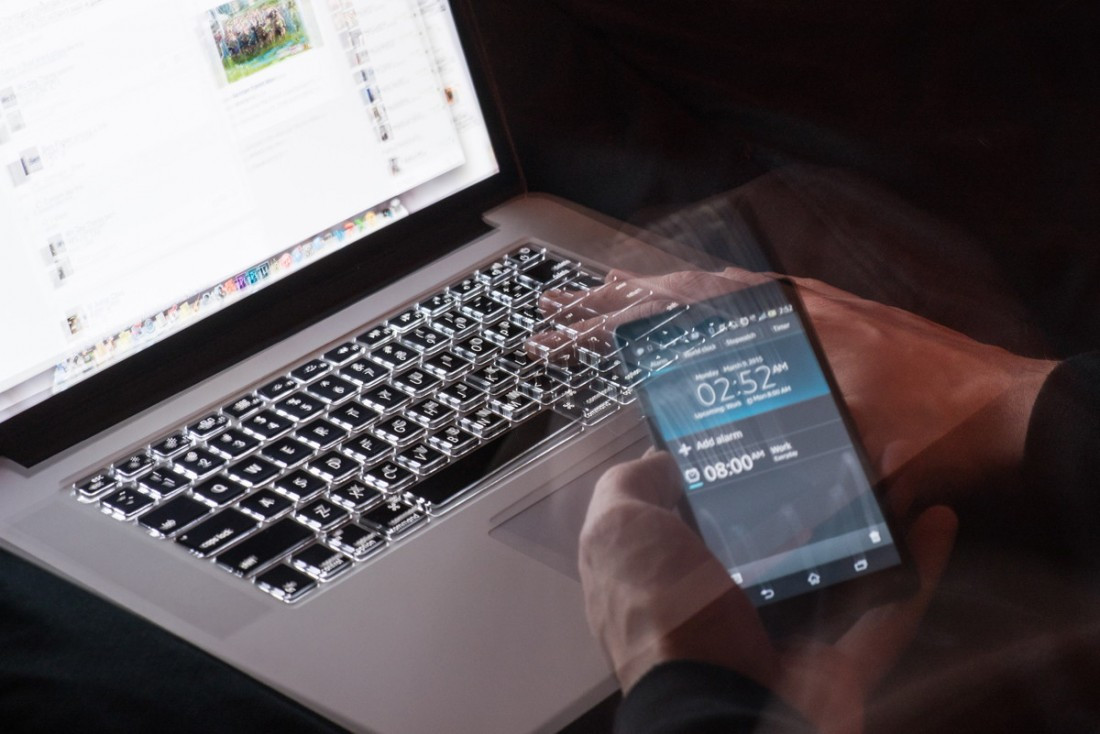Up All Night: Insomnia and the internet
Sleep disorders can turn nightlife into an isolating ordeal
I’ve always had mixed feelings about The Uniter’s regular Up All Night column. On one hand, I like reading about the after-dark Winnipeg experience. But as a lifelong insomniac, the words “up all night” rarely hold positive connotations. When you have a sleep disorder, being up all night isn’t a choice you make, it’s just a thing that happens.
My insomnia comes in waves. I spent most of February cultivating a comfortable sleep cycle, but I’ve spent all of March awake until the sun comes up. Sleep medication can help, but it’s a compromise. You can either spend all night awake, or all of tomorrow groggy and sluggish. If you use it too often, it loses its effectiveness, and then you have a week of no sleep ahead of you.
Boredom is insomnia’s nastiest symptom. Hours spent awake in bed always feels like a waste of time after the fact. I always end up thinking, “I could’ve watched three movies!” But in the moment, you aren’t thinking about activities, you’re just trying to sleep. Usually, the only time-killer is the Internet.
Theoretically, the Internet should be an insomniac’s best friend. It can be incredibly isolating, being awake when your corner of the world is asleep. But in reality, the Internet is dead at 3 a.m. Social media comes to a standstill. There are a million things to do or read online (anyone can kill three hours in a Wikipedia rabbit hole), but anything too stimulating will set your brain moving too quickly for sleep. One of the most painful questions I regularly ask myself is, “What’s more interesting than doing nothing, but boring enough to put me to sleep?”
On the night of March 9 (or the early morning of March 10), I made the conscious decision to seek out an online insomniac community. It’s something I’d heard of but never tried. Initially my hopes were high, because my first Google search revealed that March 9 was actually Insomnia Awareness Day. “There must be something exciting going on tonight,” I thought.
I explored a few insomniac hashtags. #InsomniaChat is tied into Awareness Day, but all it really yields are news articles about the day, and a few conspiracy-theorist accounts tweeting about government spying.
#Insomnia is more active. The problem is, no one posts anything useful under this banner. It’s only other insomniacs complaining about their insomnia (or, infuriatingly, non-insomniacs using the hashtag to complain about having consumed too much caffeine that day).
#NoSleepSociety looks promising, since it has a little more character. But after a few tweets, the entire feed is taken over by an obnoxious, bro-targeting clothing company called No Sleep Society. I move onto #NoSleepTeam, but discover that this thread has been hijacked by another clothing company, this one actually called #NoSleepTeam (hashtag included). I wonder if these companies reverse-engineer their names based on preexisting hashtags.
I explore some insomnia message boards. InsomniaLand seems to be the most active, but the most recent post was weeks ago. An online support group board is an endless stream of insomniac complaints. That’s the problem with the idea of an insomniac community: it’s no fun to just complain, and that’s really all there is to talk about.
My final search takes me to a clickbait list of “7 Creative and Hands-on Activities for the Insomniac.” The first suggestion is to “cover your walls in National Geographic photos”. The suggestions only get worse.
I give up and log into Plenty of Fish.
Published in Volume 69, Number 25 of The Uniter (March 18, 2015)








